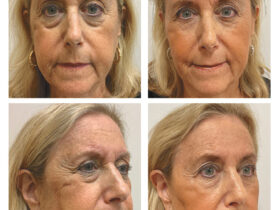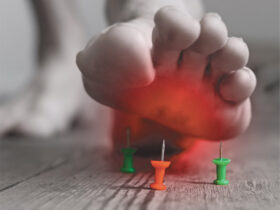 According to the American Animal Hospital Association (AAHA), there are four primary stages of a dog’s life — puppyhood, young adulthood, mature adulthood, and senior — that occur before the end-of-life phase. These stages are not universally applied at specific ages to all breeds, however. Many factors feed into the time you start to apply the word senior to Max or Trixie and decide to seek out senior-pet veterinary care.
According to the American Animal Hospital Association (AAHA), there are four primary stages of a dog’s life — puppyhood, young adulthood, mature adulthood, and senior — that occur before the end-of-life phase. These stages are not universally applied at specific ages to all breeds, however. Many factors feed into the time you start to apply the word senior to Max or Trixie and decide to seek out senior-pet veterinary care.
Age, of course is the obvious factor, but species (canine vs. feline), breed, lifestyle, and general health status all factor into the calculation. A 10-year-old cat may be equivalent to 63 in human years, while a 10-year-old dog may be considered anywhere from 56 to 78, according to the American Veterinary Medical Association (AVMA).
Breed plays a very important part in the equation. The larger the breed, the sooner age-related conditions tend to arise. Large-breed dogs may be considered geriatric dogs at 5 or 6, possibly while small dogs may not qualify for geriatric care until they are 10 or 12. It is a given that small breeds live longer, so senior status does not kick in until a more advanced age — and at that same age, a large-breed dog might be looking at a treatment plan for end-of-life care.
As our pets get older, caring for them properly is even more important than ever. As they age, their needs begin to change. Predicting and recognizing the signs of aging can help you care for your pet, while maintaining their health and happiness. Here’s what to look for and ways to make aging more comfortable for your pet.
What to expect as your pet ages:
1. Breathing changes
If your pet is having trouble breathing, especially if he seems to be gasping for air or his chest seems tight and restricted when he breathes, it’s time to make an appointment with the veterinarian. You may find that older pets can have mild fibrosis of their lungs which decreases their ability to expand the lungs and exchange oxygen appropriately.
2. Weight change
As pets age, it’s normal for them to gain weight because they tend to be less active. It is important to pay attention if your senior pet is losing weight rapidly, which could be due reduced appetite or poor absorption of nutrients.
3. Hearing and eyesight loss
Hearing loss and eyesight degeneration are common in older animals. When dogs lose their hearing, it typically starts with the higher frequencies and affects both ears simultaneously, usually occurring towards the end of a breed’s normal lifespan. Some pets may develop cataracts in old age, or retinal degeneration with age.
4. Slowing down
You might notice that your pet will start to slow down as he/she matures. Older pets may have difficulty getting around, trouble with stairs, jumping into the car or just getting up after a nap. He might also show weakness in the joints, which may indicate arthritis or another degenerative disease.
How to care for aging pets:
Tip #1 Watch their weight.
Obesity can shorten the lifespan of your pet by as much as two years. Fat cells produce dozens of inflammatory proteins called “cytokines” which not only increase your pet’s risk of joint disease, heart disease and endocrine issues, but it can also increase their risk of cancer. A veterinary can help calculate your pet’s Body Condition Score, which is similar to the Body Mass Index in people, and make recommendations on how to safely get your pet to an appropriate weight.
Tip #2 Keep them active.
Exercise not only helps keep muscles strong and lean but it may also help to prevent a variety of behavioral issues, including destructive behaviors like chewing or digging. Aside from preventing these issues, providing your dog with regular exercise supports healthy aging by easing chronic symptoms and allows them to be social and explore their environment.
Tip #3 Have yearly blood work done.
It’s important to perform routine lab work on our pets, so we can know what their “normal” is. Having a baseline Complete Blood Count (CBC), chemistry panel, urinalysis and thyroid profile is important to allow the vet to monitor small changes over time. Being able to monitor even the smallest of changes can help your vet find larger problems before they get to a point where treatment may no longer be an option.
Tip #4 Maintain their dental health.
Over 80% of pets over three years of age already have some degree of dental disease. Dental disease can not only cause significant pain, problems eating, and foul breath, but it can also set up your pet for cardiac disease, kidney and liver issues, as well as serve as a source of infection for the entire body. By brushing your pets’ teeth, encouraging chewing on Veterinary Oral Health Council (VOHC) approved items, and having routine dentistry performed by your veterinarian, you can avoid bad breath and future preventable issues.
Tip #5 Monitor their diet.
As our pets age, their dietary requirements will change as well. For example, smaller breeds of dogs need less food as they get older while larger ones may require more nutrients to maintain a healthy weight and minimize obesity-related health problems. So, it’s important to provide a diet tailored to your senior pet that’s well-balanced, high in fiber, and has an adequate protein to fat ratio.
Animal Oasis Veterinary Hospital in Naples offers the most up to date and progressive veterinary services for your pets. Ranging from laser surgery, ultrasound, dental X-rays, radiology, full pharmacy, and in house diagnostics, Animal Oasis Veterinary Hospital provides your pets with the necessary options for treatment.
Contact Animal Oasis Veterinary Hospital to schedule vaccinations, pick up paperwork, and extra medications for your pets today!
Animal Oasis Veterinary Hospital
239-431-9667
www.aovethospital.com









